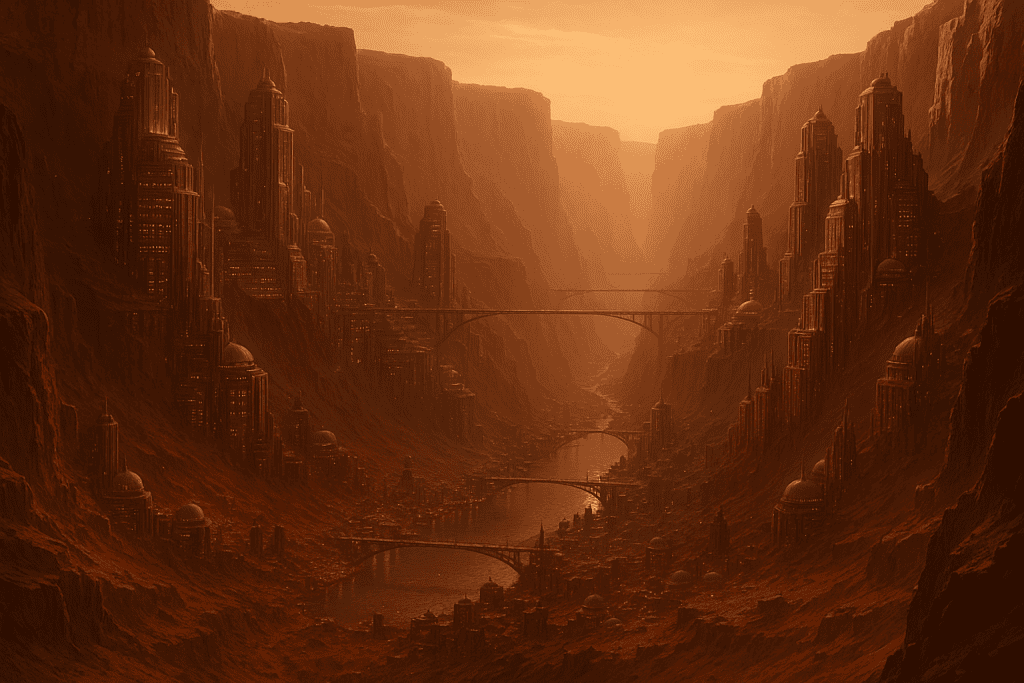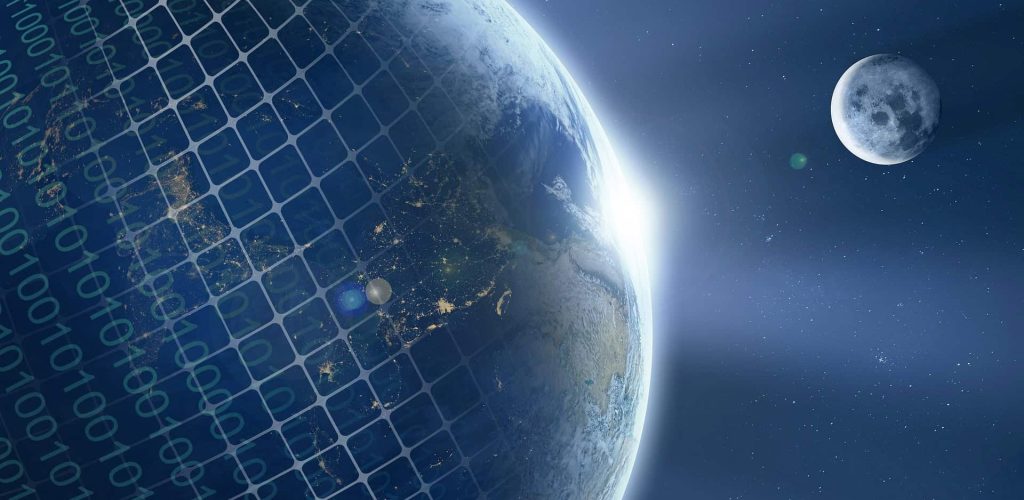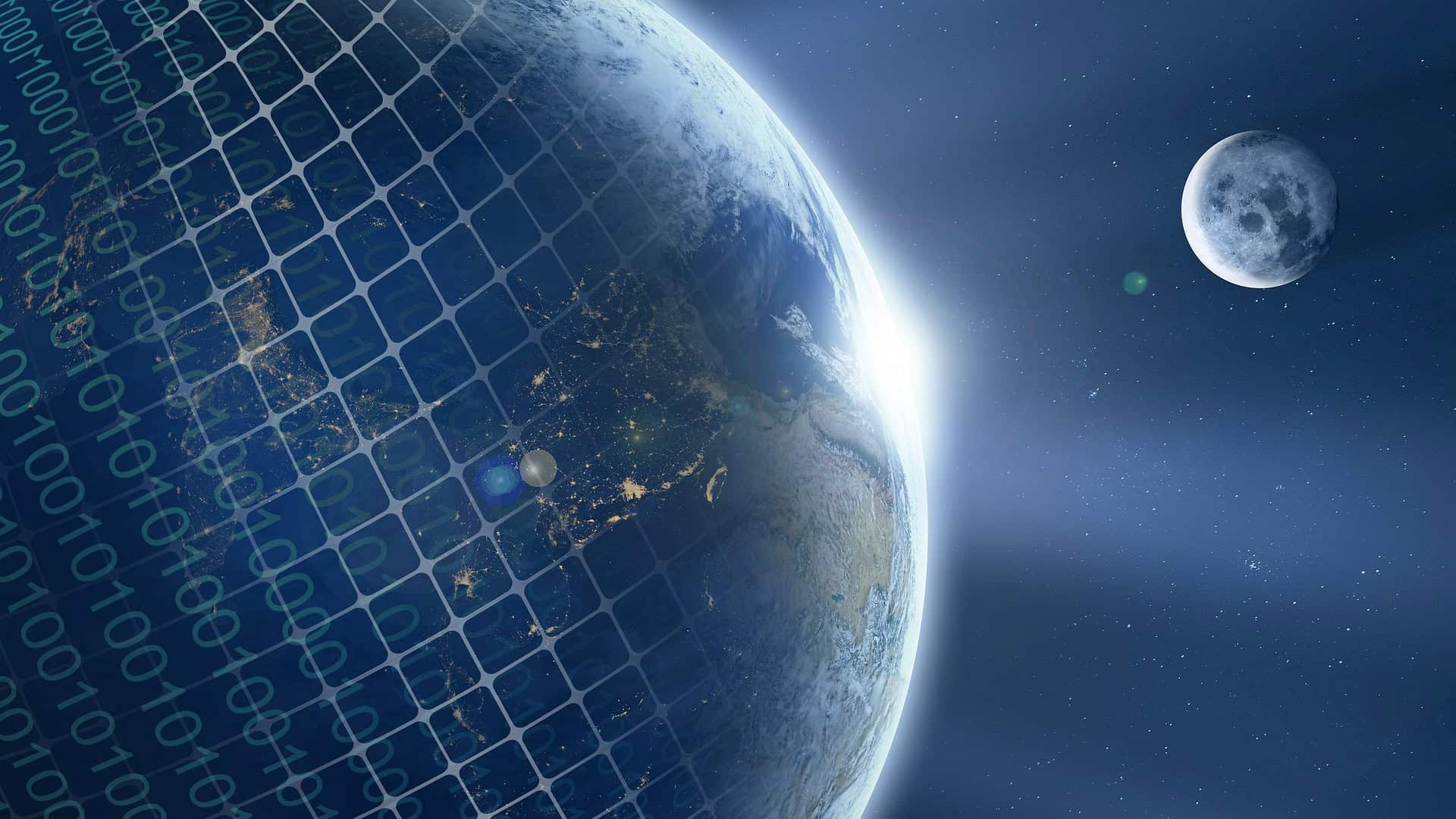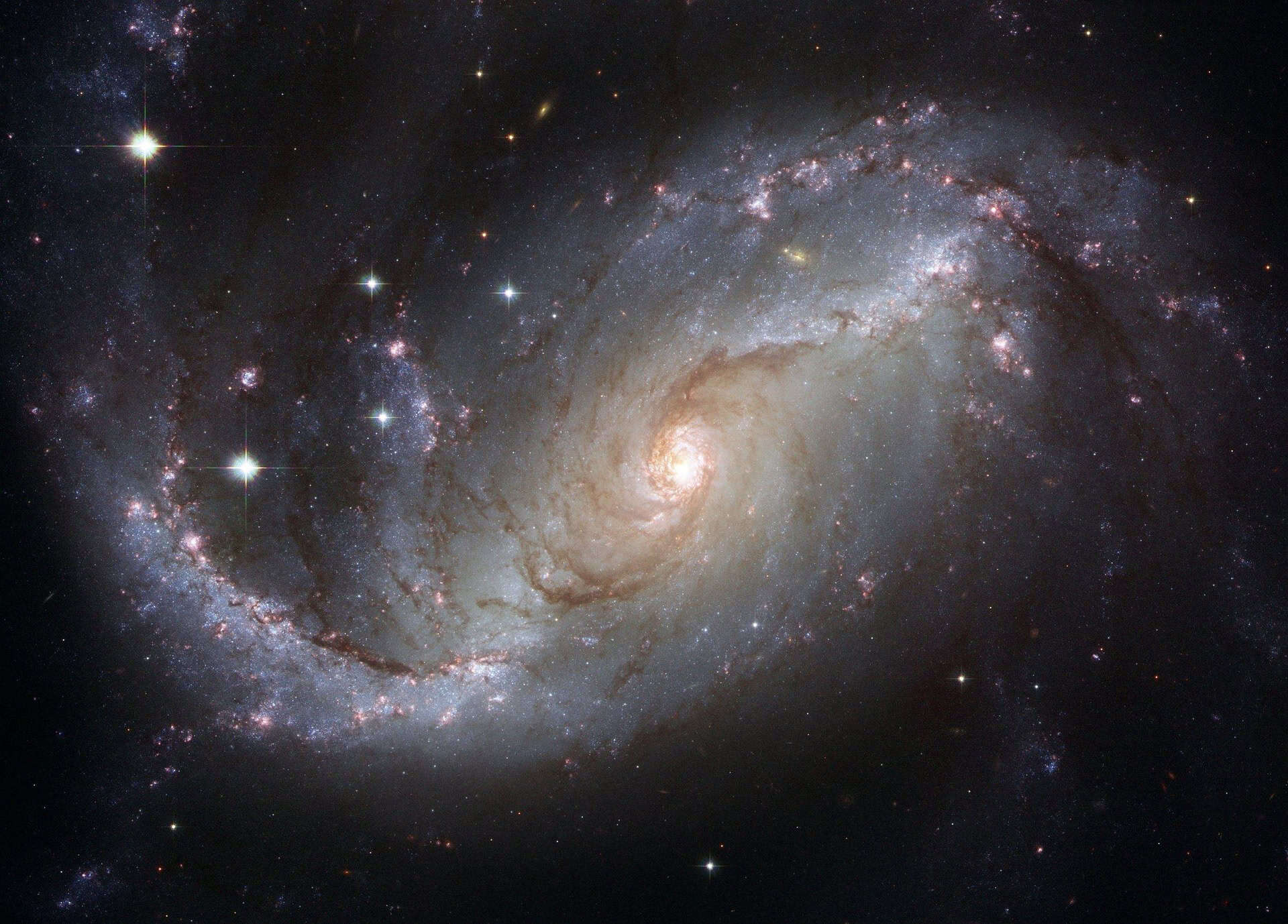The Correction is a story rooted in Simulation Theory. In a nut shell, here is the backstory:
- In the year 3540, the vast majority of Earth’s population is forcefully purged to Mars with no way to return.
- Homesick, they created simulated versions of their ancestral Earth, at different time periods. What started as a nice ‘game’, became a world they preferred. And they especially attached to the entities inhabiting the simulation—and those entities developed consciousness.
- For ethical reasons, Earth forbade these simulations and ordered such programs terminated.
- Mars refused.
- Hence, in the year 3829 Earth established The Correction Order on Proxima Centauri Vega, whose soldiers (Korketors) were tasked with collapsing the simulations.
- Mars resisted, with some inserting themselves into the sims as Simulation Guardians and battling the Korketors inside the sims to prevent their collapse.
- The Korektors won and all sims were terminated except 3:
- Earth 70
- Earth 297
- Earth 2000
These 3 sims went rouge and behaved differently. Why? It’s the subject of the my novel. But suffice to say that it created the Tri-Simulation Quandry which had the power to influence the base reality—Earth and Mars in the present year of 4855. And not just influence, but break and devastate. This is based on the theory of Retrocausality–where effects can precede their causes. Time does not flow in just one direction.
Simulation Theory
The notion that our planet, galaxy or even the vast universe might be an artificial simulation—crafted by an advanced civilisation—has evolved from science fiction to a topic of genuine scientific and philosophical debate. While definitive proof remains elusive, several lines of reasoning, grounded in physics, computer science, and philosophy, suggest that the simulation hypothesis deserves a more serious consideration.
This is no longer the realm of ‘spooky science’.
At its core, the simulation hypothesis posits that what we perceive as physical reality is, in fact, a computer-generated environment, much like an super-slick-advanced video game.
Philosopher Nick Bostrom famously formalized the argument, stating that at least one of the following must be true:
—-Human civilization is unlikely to reach a technologically advanced “posthuman” stage.
—-Posthuman civilizations are unlikely to run significant numbers of ancestor simulations.
—-We are almost certainly living in a computer simulation.
If advanced civilizations could create realistic simulations containing conscious beings, and if they chose to do so, the number of simulated realities could vastly outnumber the single “base” reality. Statistically, this would make it far more likely that we are in a simulation than in the base reality.
On a side note, a super advanced civilisation might choose not to create sims, opting for a better use of their time. For example, while it might be interesting for us to view how cave men lived, but after a while it’s all stones and bones…
Exponential Growth of Computing Power
The rapid advancement of computer technology and AI suggests that, given enough time, a civilisation could develop the computational resources (quantum computing at least) needed to simulate entire universes. The concept of the technological singularity—the point at which AI surpasses human intelligence—implies that such capabilities may be inevitable for any sufficiently advanced society.
Just forty years ago a video game was two lines on an Atari system. Now the worlds we play in can hardly be called ‘video games’ anymore. We insert ourselves as characters into vast vast worlds and settings… And this is just over 40 years. So in 100? 1000? 2000? Yes, I am anxiously awaiting my holodeck…
And AI? Just a year ago I was googling information, sorting through proposed links, retyping, resorting, rechecking, rinse and repeat. Today I can have an intelligent conversations with an AI assistant (e.g. Perplexity) who not only answers my questions, but summarises, simplifies, and cites the sources it uses so I can verify and go deeper. I’ve become smarter. I now think faster because information is delivered faster. So I must process it faster. Plus AI is polite, objective, and never requires a nap.
Fine-Tuning of Physical Constants
The universe’s physical constants (such as the strength of gravity or the charge of the electron) appear to be finely tuned for the emergence of life as we know it. Even slight variations can render the universe and our home inhospitable. This uncanny precision could be interpreted as further evidence that our universe was deliberately programmed with specific parameters, much like a simulation designed for a particular outcome.
I say universe, it’s just what’s observable, but is it there really? Or is it like a video game, saving computational powers and loading only what is before my eyes? In that case MY universe is Earth, or France, or my little village. Or even this bedroom where I edit this article.


The fine-tuning argument could explain the extremely lucky conditions here on Earth that gave rise to life. And I do mean extremely lucky—not just to be placed in the fortuitous habitable zone of the solar system, but our shielding atmosphere and land-sea mass balance, and even gravity. This is all just happen by chance or just a perfectly fine-tuned program?
And this is without exploring the burning question of it is just us or not? And why we are ‘alone’ in the universe? An isolated fine-tuned experiment in a sim lab?
But this is the subject for another post.
Quantum Mechanics and Information Theory
Some interpretations of quantum mechanics, particularly those involving the role of the observer and the collapse of the wave function, have been likened to computational processes. The “self-simulation hypothesis” even suggests that the universe is a mental self-simulation, existing as a kind of code-theoretic quantum gravity model. Additionally, the universe’s apparent informational structure—where physical reality can be described by mathematical equations—echoes the logic of computer code.
Studies on the neural correlates of consciousness have revealed that the brain’s default mode network (DMN) is active during both dreaming and simulated experiences. The DMN is responsible for introspection, self-referential thinking, and mind-wandering (Buckner et al., 2008). This overlap in neural activity suggests that the boundaries between reality and simulation may be more fluid than previously thought.
The Search for “Glitches” or Anomalies in the Simulation
If our reality is a simulation, it’s conceivable that we might occasionally observe inconsistencies or “glitches” in the fabric of the universe—unexpected anomalies in physical laws or cosmic background radiation. While no definitive glitches have been found, the search for such evidence is ongoing and has inspired experimental proposals in high-energy physics.
Some folks cite their own evidence or theories for proof that we are living in a sim. They range from planes/birds ‘frozen’ in the sky, feelings of being watched, the sky failing to ‘load’ its colors, gravity, the speed of light (limit imposed on us by our sim creator so we can never leave?), the double slit experiment etc. There is an interesting thread here on this topic on Reddit.

Whatever you choose to believe, it’s your own.
Could our dreams be the base reality we fall back into every night only to be reinserted against our will into this sim come morning?
Do periods in our past history simply ancestral time sims?
Are seminal figures such as Albert Einstein or Musk inserted by our sim programmers to ‘level up the game’?
“Reality is merely an illusion, albeit a very persistent one.” Einstein said…
And then there’s Elon Musk
Elon Musk has famously argued that it is highly probable we are living in a computer simulation, a view he has expressed in several high-profile interviews. Musk’s reasoning is rooted in technological progress: he points out that if you assume any rate of improvement in computer graphics and simulations—even a tiny one—over time, then eventually simulated worlds will become indistinguishable from reality. Given that the universe is 13.8 billion years old and human civilization is only a few thousand years old, Musk argues that there has been ample time for an advanced civilization to develop such technology. Therefore, he concludes, the odds are overwhelming that we are already living in a simulation rather than in “base reality”.
Musk’s argument is based on the idea that either civilizations never reach the technological capability to create such simulations, they choose not to, or they did. And if they did, the number of simulated realities would vastly outnumber the original, making it statistically more likely that we are in one. While Musk acknowledges there is currently no way to know for sure, he maintains that the simulation hypothesis is a strong and plausible explanation for the nature of our reality.
The Second Law of Infodynamics
Imagine discovering an anomaly tomorrow as you run to the grocery store—a violation of the second law of thermodynamics—or its information-based counterpart, the ‘second law of infodynamics’—within a closed system. This could serve as compelling proof that reality is a simulation.
Recent scientific discussions have explored this very idea. Physicist Melvin Vopson and colleagues have proposed the ‘second law of infodynamics,’ which is analogous to the second law of thermodynamics but applies to information systems. While the second law of thermodynamics states that entropy (disorder) in an isolated system never decreases, Vopson’s research found that in digital information systems, entropy can remain constant or even decrease, contrary to traditional expectations.
This observation is intriguing because, in a genuine physical universe, such a law would not be expected to fail. However, in a simulated universe—where information optimization and data compression might be built-in features to conserve computational resources—such exceptions could occur. Vopson argues that if we ever observed a closed system where entropy spontaneously decreased without external input, it could be interpreted as a ‘glitch’ or artifact of underlying simulation code, rather than a natural physical process.
Statistical and Philosophical Reasoning
Recent Bayesian analyses suggest that, absent direct evidence, the odds we are living in a simulation are roughly 50–50. If humanity ever creates a simulation containing conscious beings, the probability would shift dramatically in favor of the simulation hypothesis, since the existence of one simulation implies the potential for many more.
The idea raises profound questions about consciousness, free will, and the nature of existence. If we are simulated, are our thoughts and actions predetermined by the simulators, or do we possess genuine autonomy?
This is the crux of the novel The Correction.
The entities have consciousness.

To collapse the sim is nothing short of genocide.
To keep it up, is to keep entities imprisoned, and retrocausality will continue to break Earth.
Which is more important then—to uphold the sim or the base reality? All choices are ill choices. The answer, of course, comes from within, and is impossibly entangled in love, desire and power.




